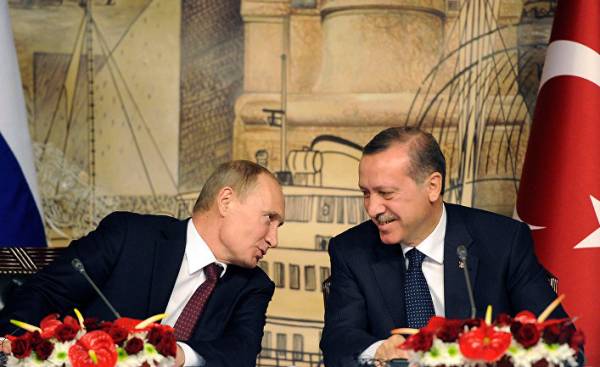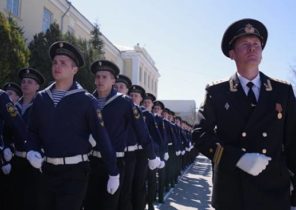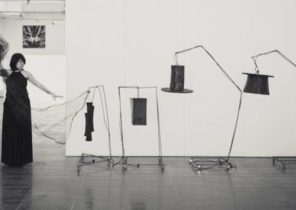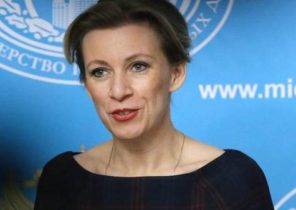
The rise of “illiberal democracy” in Europe is one of the most destructive trends of our time. Such regimes usually rely on a leader who consolidated his power, violating — and in some cases destroying — the system of institutional checks and balances. Vladimir Putin in Russia, Recep Tayyip Erdogan in Turkey and Viktor Orban in Hungary represent the three most obvious example of this phenomenon. But the most remarkable — and dangerous — as these regimes manage to maintain popular support.
Control over traditional media — TV, radio and Newspapers — of course, is the reason for the persistence of these modes of electoral majority. But the manipulation or direct control of the media can’t explain the timeless popularity of these illiberal leaders on which to judge the public opinion polls.
The main reason for the political success of these leaders is that their regimes, in spite of his anti-Western positioning, adhere to the principles of the so-called Washington consensus, which requires responsible macroeconomic policy and market openness.
Russia under Putin is a perfect example of this approach: the government usually has a budget surplus and accumulated huge foreign exchange reserves. Hungary under Orban also maintains a responsible fiscal policy, but Erdogan did the same in Turkey. In all three countries the level of debt either already low or, as in Hungary, is reduced. In two of the three cases, the liberal predecessors of the current regime has lost credibility because it has brought the country to financial crisis.
In spite of that, the anti-liberal authoritarian rulers have adopted the essence of the Washington consensus: prudent macroeconomic policy delivers improved economic performance in the long term. Typically, they delegate the management of the macroeconomy apolitical professionals. They did not succumb to the temptation to use short-term fiscal or monetary stimulus to enhance its popularity, but instead took a policy identity for the sake of electoral dominance.
The long-term result of this approach was the relatively good state of the economy and relatively satisfied voters.
This approach contrasts sharply with the approach of the late authoritarian leader of Venezuela Hugo Chavez, who enjoyed the support of the people for 14 years, spending the income from the prolonged boom in oil prices on the generous social programs. Now, when the price of oil has fallen by about half compared with 2014, without having a budget cushion to maintain the same volume of import, the successor of Chavez, Nicolas Maduro was faced with catastrophic economic crisis and the escalation of the riots.
It turns out that responsible macroeconomic policies proved effective long-term strategy of maintaining the regime. Anti-liberal dictators of Europe realized that in that moment, when the excess spending will lead to financial crisis and the need to seek help from the International monetary Fund, their days in power are numbered.
Prudent macroeconomic policies promotes economic growth, but it can benefit only if the economy remains relatively free. So far, neither Putin nor Erdogan has combined his nationalist rhetoric with protectionist policies. On the contrary, Putin’s Russia joined the world trade organization, and Erdogan has never questioned Turkey’s customs Union with the EU, although bilateral relations with the EU deteriorated significantly.
A long-term challenge of authoritarian rulers is to maintain their anti-liberal from a political point of view, the regimes in liberal from the economic point of view the form. Over time, however, the temptation to hand over control of an increasing share of the economy to friends and family is becoming stronger, while corruption trends are increasing because “the main game in town” is the formation of political connections and benefit from the flattering attitude to the regime. Once that happens, the economy is doomed to decline.
This long-term threat is most clearly visible in Russia. Putin was lucky to come to power at a time when oil prices started to rise from record low levels. No wonder Russia’s economy steadily grew in the time following the arrival of Putin to power commodities super cycle, but recently this super-cycle is over. During the boom of oil prices macroeconomic management in Russia was quite reasonable, which allowed the regime to survive during the sharp fall.
But now, almost three years after the end of the commodities super cycle, Russia’s prospects look bleak. The level of quality of life is stagnating, and the potential growth of the economy, many estimate only 1.5% and that means that Russia will forever remain poorer than the rest of Europe.
It is not excluded that Turkey is at a similar turning point. “The party of justice and development” party (AKP) of Erdogan inherited an economy in a state of rebound after a deep financial crisis. In addition, the Turkish economy has been significant growth potential thanks to continued urbanization and increase of education level of the population.
Until recently, the AKP government has limited its intervention in the economy, public procurement and infrastructure spending. But after a failed attempt of a military coup last year, the regime decided to capture the business that belonged to people who were accused of sympathizing with the so-called movement of gulenists (Erdogan accused the movement in the preparation of the coup).
Hundreds of businesses in Turkey has captured and brought under control close to the Erdogan people. If this policy continues, entrepreneurs will simply cease to invest in the country, and growth will stop. The problem here is that as soon as illiberal regime embarking on this path, he loses the ability to easily prove their willingness to respect property rights, because the institutions that guarantee this right in a liberal democracy (independent judiciary, professional civil service), no longer exists.
Authoritarian rulers in Europe today retain popular support by maintaining comparative economic freedom, which depends on the long-term prosperity of their countries. But as these modes are becoming autoritarna, their ability to instill a sense of happiness in the voters becoming more and more questionable.







